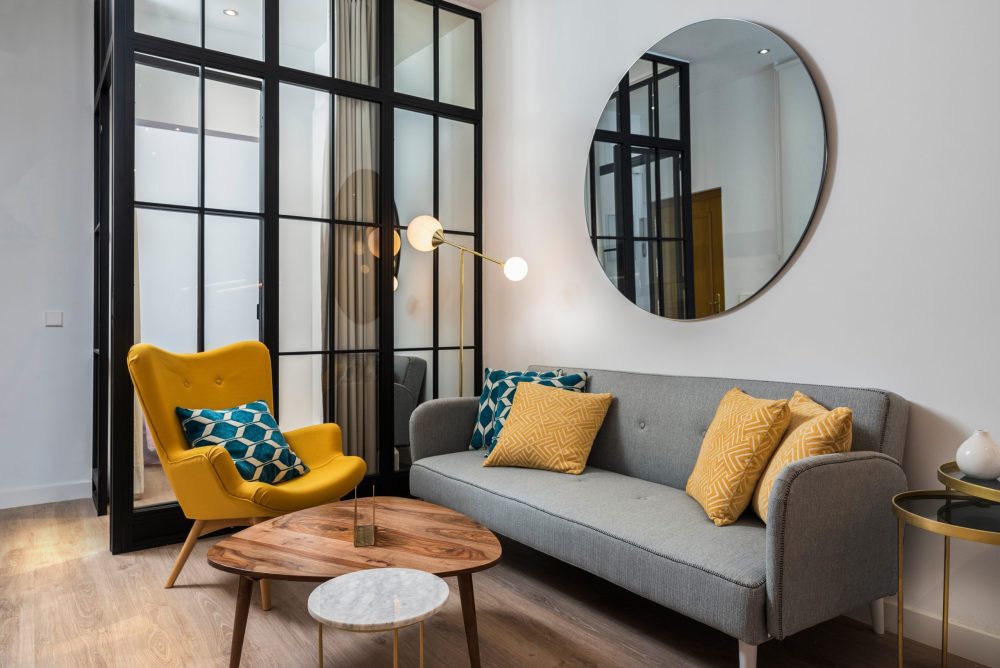Street contract: a strategic segment of outdoor furnishings

With a turnover of roughly 35 million euro in 2008 and exports accounting for 55% of sales, EMU is one of Europe’s leaders in the field of outdoor furnishings.
In April 2005 EMU was acquired by the LCapital Fund of the Louis Vuitton Group. In March 2009 LCapital decided to withdraw from EMU, returning it to the hands of the original family owners, supported by a partial management buy-out by Roberto Ambroso (sales and marketing) and Giorgio Comodi (administration and finance). With Mr. Ambroso we shall analyse this company case study, which is particularly interesting in the light of a historic moment that once again underlines the battle between production and finance.
Q.: How has EMU evolved since the turning point in 2005, when EMU was acquired by the LCapital Fund?
Let’s take a step back. Until the end of the 1990s in Europe there were about 15 firms in the outdoor furnishings sector, a sector that traditionally had little propensity to marketing, the valorisation of the brand name, etc. This group of firms, on the other hand, communicates the brand name, interacts with designers and pays greater attention to the range. And effectively the outdoor market is veering a little in this direction: consolidation of the top end, greater interaction with the “big brothers” of the indoor sector (the benchmark is the “Indoor/Outdoor” hall of Maison Object, in Paris), and an attempt to reduce the degree of intermediation in the sector (i.e. focusing on mail order and their own outlets).
Between 2003 and 2005 a number of investors considered the outdoor sector to have great potential; the idea behind the four or five large financial operations that took place at that time was basically the same: operate in the Outdoor sector just like the best firms in the Indoor sector. This means paying the same attention to design, range, selective distribution and brand policy.
Everything was (and is) true to a certain extent, but trends are one thing and large numbers another. In short, in the case of EMU all the firm’s investments (which were huge: five complete new collections in two and a half years) were targeted at the upper-end, and the firm ended up neglecting its core business, the “garden centres” and “street contract” segment.
Q.: Street contract?
By this I mean furnishings for restaurants and other catering outlets, including those organised at a multinational level (like Starbucks), which has always been one of the strengths of EMU. But this is a business that is basically without a brand name and at relatively contained prices, and the holding company didn’t understand that. Unfortunately, in the meantime the “EMU advanced” collection (upper-end, branded, etc.) only generated 15% of company turnover, and not 50% as per the business plan.
In 2009 all the firms involved in the upper-end outdoor furnishings segment recorded losses of 30%; the finance companies realised that perhaps too many of them had concentrated on too small a niche market and they got out. Between 2007 and 2009 EMU claimed 500 new customers in Europe, but the product rotation was far too slow. Outdoor furnishings is a sector where new ideas are absorbed very slowly and the strong seasonal characteristic creates considerable problems.
The stress then was on the need to outsource (mainly to China), but today production is almost totally carried out once again in Marsciano (Perugia).
Q.: What have you salvaged from 2009, which was in some ways an “annus horribilis” for everyone?
We are getting ready for the recovery.
It will take us three years to return to the record turnover level of 2007 (37 million euro) but we shall do so on a more lasting basis, taking care of the Advanced segment (design, one collection a year, not two or three), the classic production for Garden Centres (30 new models last year) and the so-called “Street Contract” (10 new models just presented).
Nowadays, the markets form a new pattern; the United States was historically the leading export market for EMU, but being realistic, with a strong Euro, that market will settle at about 20%.
Q.: What does it mean to do Contract business in the Outdoor sector?
The “soft” contract segment provides roughly 40% of turnover, while the contract segment in the true sense of the word (where we are the main contractor, etc.) accounts for about 5%. For example, we have contracts to supply the Accor chain’s Novotel and Sofitel hotels, and we have also participated in some large hotel projects in the Middle East. In these cases the usual procedure is contractor-specifier-procurement office. Small contracts, on the other hand, are managed by the retailer.
Interview by Aurelio Volpe